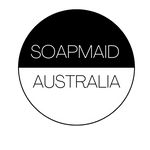
Sunflower Oil in Soap Making
In the verdant world of natural soap making, the quest for the perfect blend of oils is akin to an alchemist's pursuit of gold. Among the plethora of options, sunflower oil emerges as a golden liquid that brings a unique set of properties to the soap-making table. While olive oil has long been the stalwart of homemade soaps, the shift towards sunflower oil is not just a trend but a thoughtful consideration of the benefits it offers. In this blog, we'll explore why sunflower oil is becoming a popular choice in natural soap making and the advantages of swapping olive oil for this radiant alternative.
The Essence of Sunflower Oil in Soap Making
Sunflower oil, derived from the pressing of sunflower seeds, is a light, non-comedogenic oil that is rich in Vitamin E, linoleic acid, and oleic acids. Its gentle nature makes it a versatile ingredient for soap formulations, catering to a wide range of skin types, including sensitive and acne-prone skin. The high Vitamin E content acts as a powerful antioxidant, helping to protect the skin from environmental stressors and providing a youthful glow.
Benefits of Replacing Olive Oil with Sunflower Oil
1. Lighter Texture, Quicker Absorption Compared to olive oil, sunflower oil has a lighter texture, allowing soaps to produce a creamier lather that feels luxurious on the skin. It absorbs quickly, leaving the skin feeling soft and hydrated without the greasiness that heavier oils can sometimes impart.
2. Enhanced Skin Health The linoleic acid in sunflower oil plays a crucial role in maintaining the skin's natural barrier, promoting moisture retention, and enhancing skin health. This makes sunflower oil-based soaps particularly beneficial for individuals with dry or sensitive skin conditions.
3. Stability and Shelf Life Sunflower oil, especially high oleic varieties, offers greater stability and a longer shelf life than many other oils, including olive oil. This makes it an excellent choice for soap makers who prioritize product longevity and quality over time.
4. Environmental and Economic Considerations Sunflower oil is often more readily available and affordable than high-quality olive oil, making it an economically viable option for soap makers. Additionally, the cultivation of sunflowers has a lower environmental impact compared to olive groves, aligning with the principles of sustainability and eco-consciousness that many natural soap makers hold dear.
Incorporating Sunflower Oil into Your Soap Making
When substituting sunflower oil for olive oil in soap recipes, it's important to consider the unique properties of sunflower oil. A general guideline is to start by replacing a portion of the olive oil with sunflower oil, observing the changes in texture, lather, and skin feel. Due to its versatile nature, sunflower oil can be used in both cold process and melt and pour soap recipes, offering soap makers flexibility in their creations.

